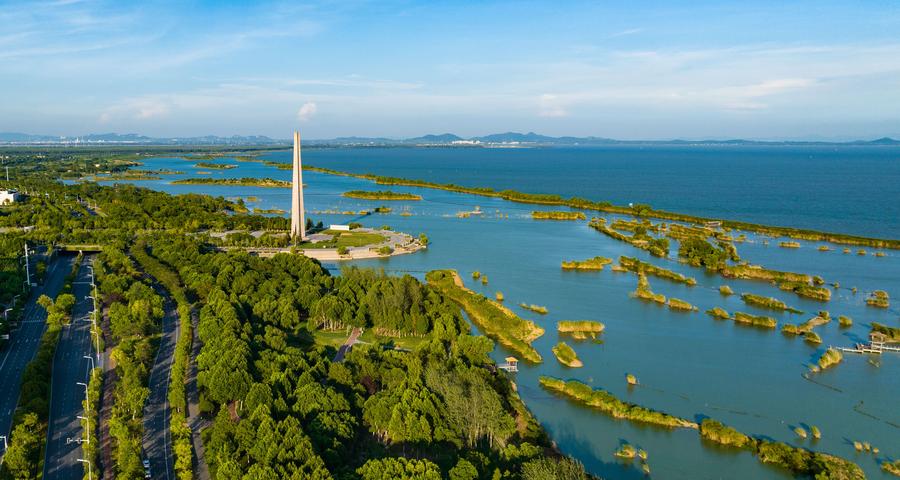This aerial photo taken on Aug. 5, 2022 shows scenery of a wetland around the Chaohu Lake in Hefei City, east China's Anhui Province. (Photo by Ye Yuting/Xinhua)
HEFEI, April 23 (Xinhua) -- The Eighteen Polder Wetland Restoration Phase III Project, part of the Shan-Shui Initiative in Anhui Province's Chaohu Lake Basin, has been selected as a demonstrative project of the United Nations (UN) Decade on Ecosystem Restoration, according to local authorities.
Led by the UN Environment Programme (UNEP) and the UN Food and Agriculture Organization (FAO), the UN Decade on Ecosystem Restoration was proposed to prevent, halt and reverse the loss and degradation of ecosystems across the world.
Chaohu Lake is one of five major freshwater lakes in China. The Eighteen Polder, located in Feidong County in Hefei City, the capital of Anhui, is an essential wetland near Chaohu Lake, according to the Chaohu Lake management bureau.
The area's population has surged since the 1960s due to continuous lake reclamation and population aggregation. The interference of long-term human activity has also led to the fragility of the local wetland ecosystem.
In 2017, Hefei made an overall plan for the implementation of the Eighteen Polder Wetland Restoration Project, which it carried out in stages. Notably, the third-phase project for the core wetland area covered approximately 4.3 square kilometers and was completed in July 2022.
The third-phase project mainly saw the transformation of artificial wetlands, including several breeding ponds, into multi-functional wetland ecosystems that have water quality purification, biodiversity protection, flood storage and green production systems.
By the conclusion of the third-phase project, a total area of 410 hectares had been restored to an ideal habitat for birds.
It also restored a total of 263 hectares of forest and grass vegetation, and the biodiversity of the wetland was significantly increased.
Some 15 species of aquatic plants have been found in the area for the first time. The number of local bird species has increased from 63 before the project to 117 in 2022, according to the bureau.





 A single purchase
A single purchase









